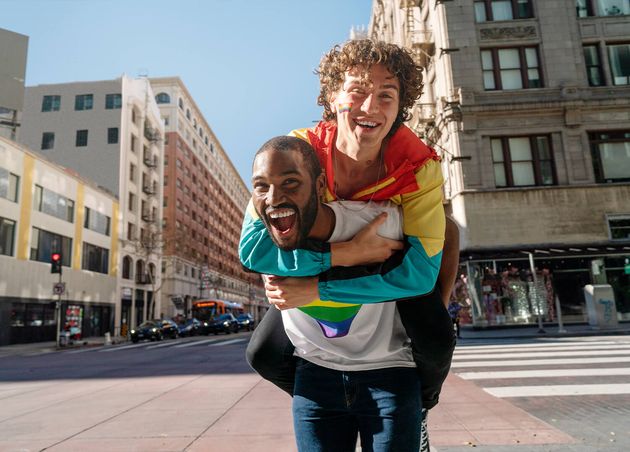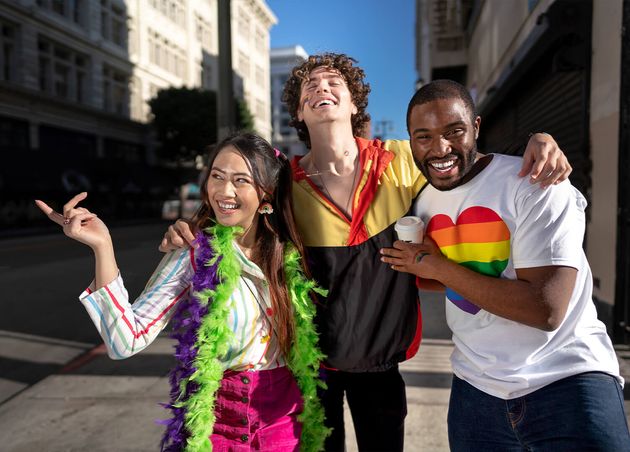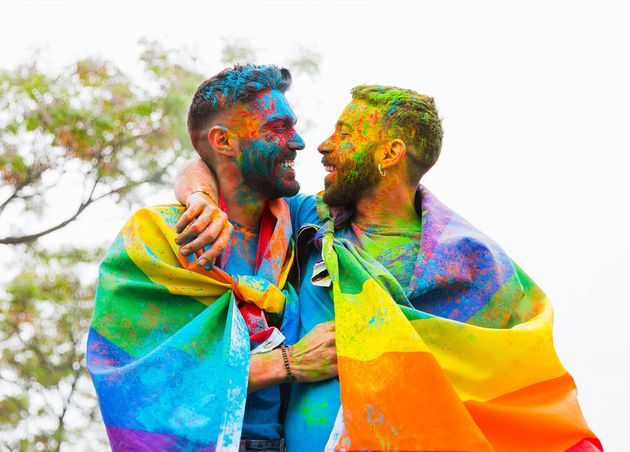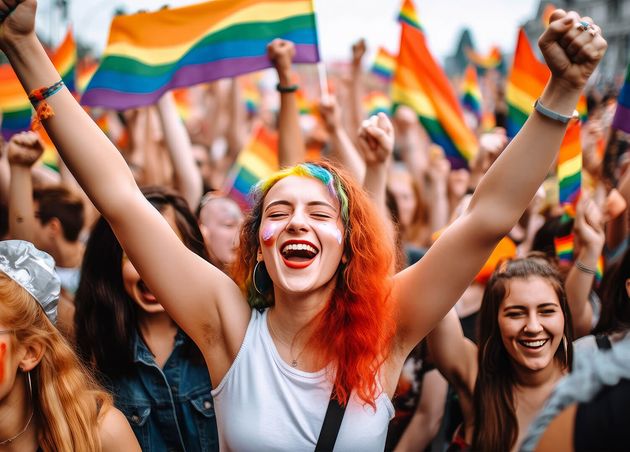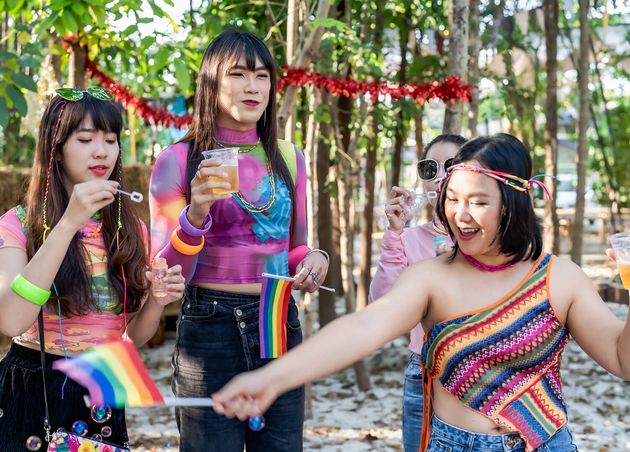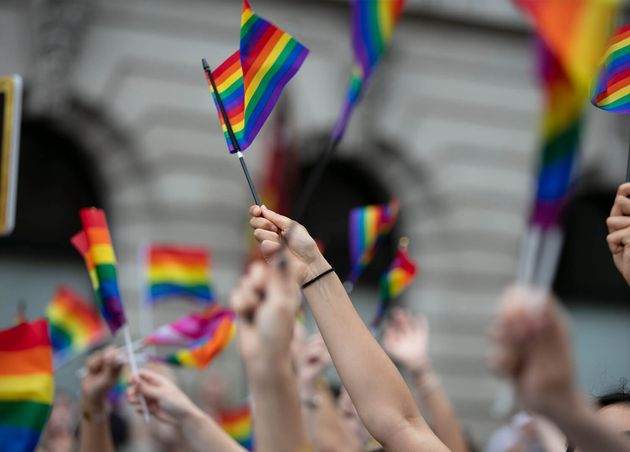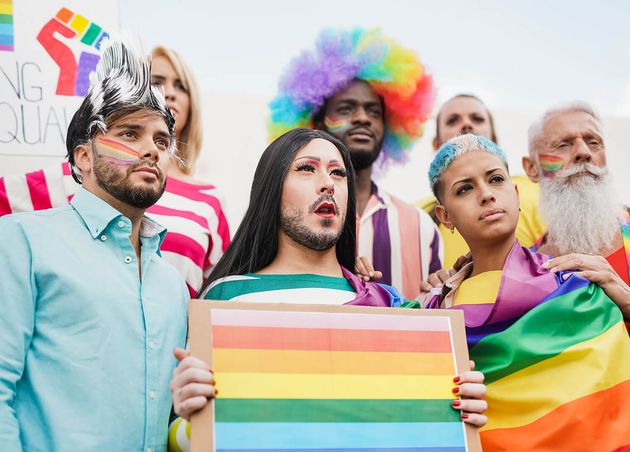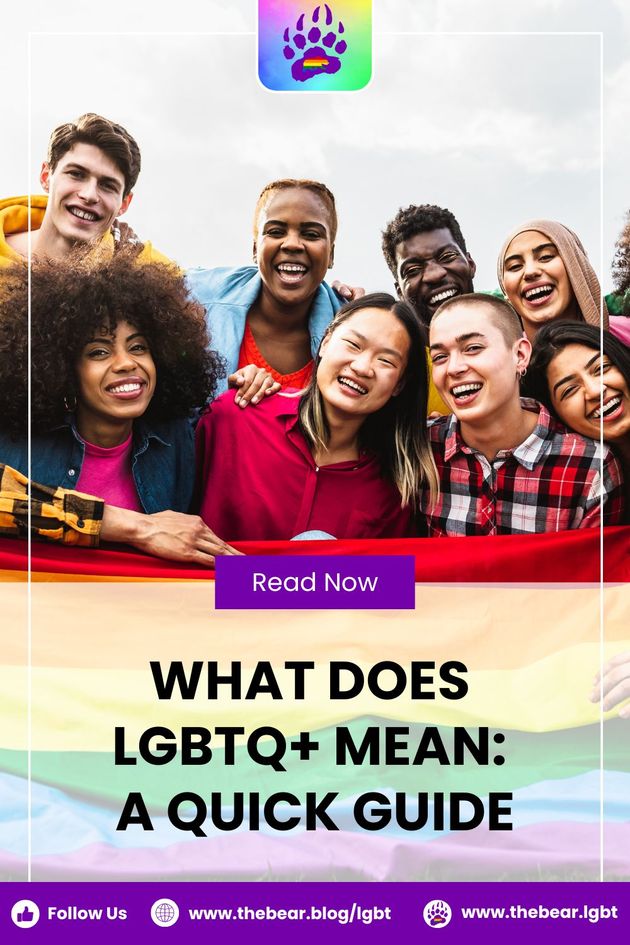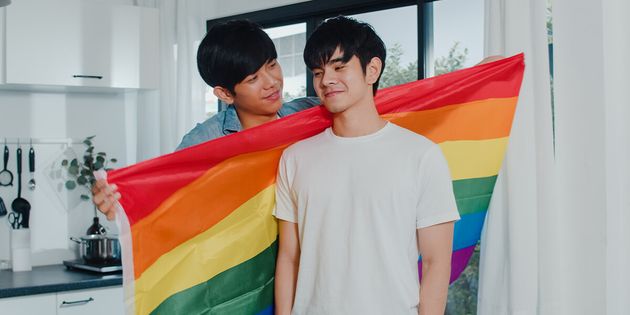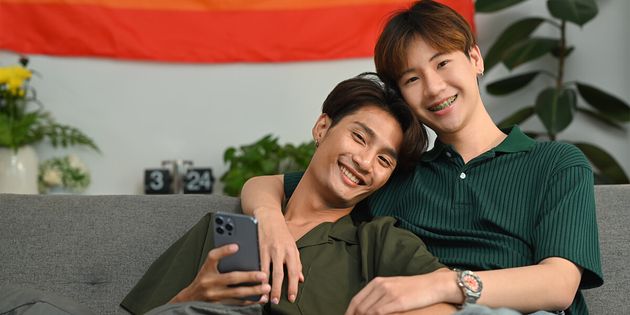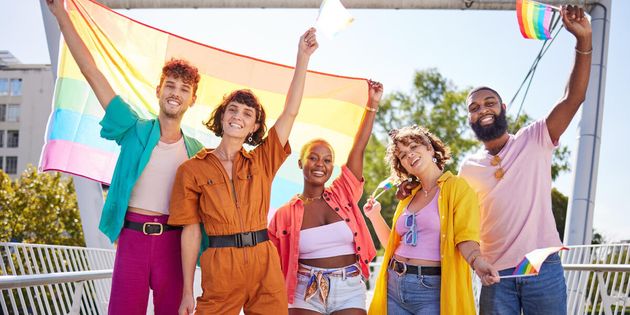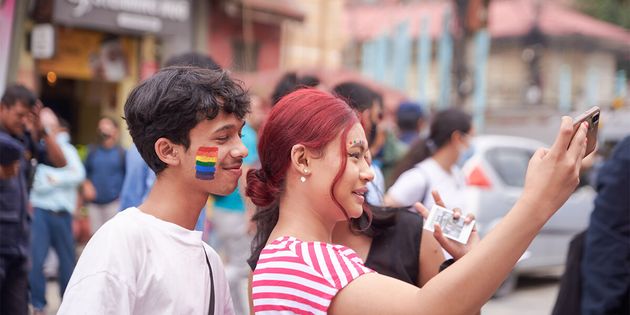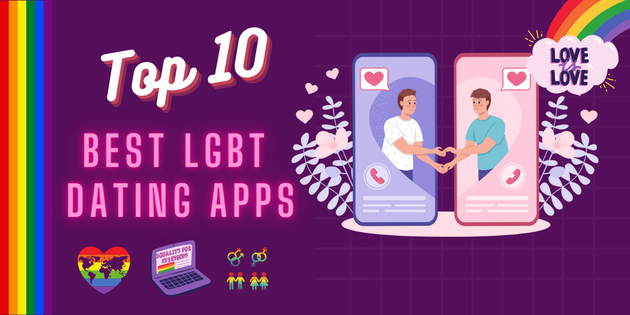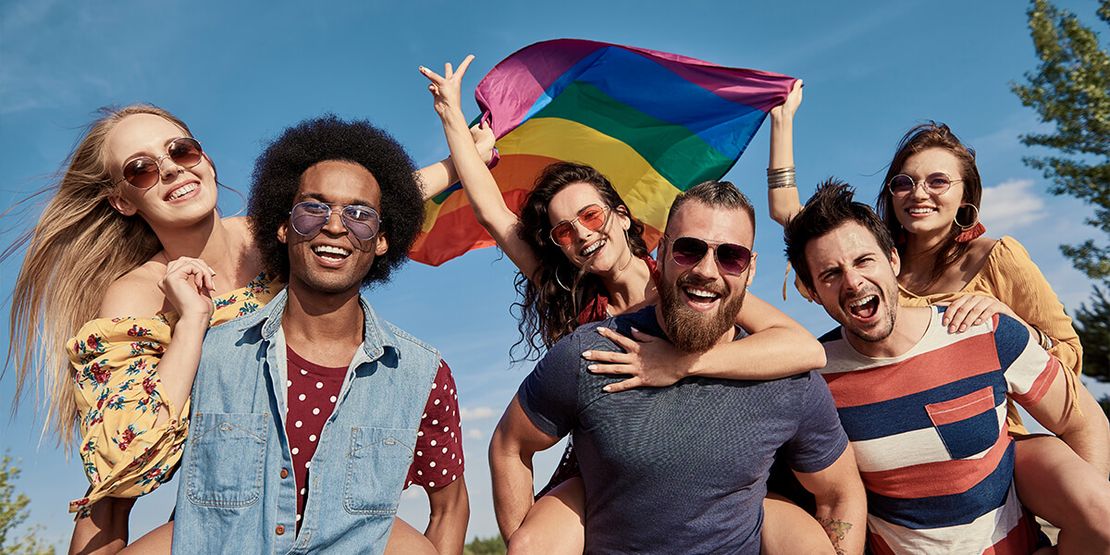
What does LGBTQ+ Means: A Quick Guide
LGBTQ+ is an acronym part of a language of letters in a larger fight for inclusion. There is also a more significant meaning than what the letters stand for 👨🎓 This guide will explain what LGBTQ+ stands for.
The "Initializing" of the LGBTQ+ human rights movement has caused division and confusion during its evolution 👩🎓 Some groups want to be included in the community but, at the same time, resist being associated with others.
And those outside the community can often not understand letters added to recognize more groups 👨🎓 But at the end of the day, LGBT stands for progress despite these issues. The term brings unity to a scattered group of minorities within a minority.
Furthermore, the letters LGBT recognize diverse identities previously referred to with hate words 👩🎓 These letters also identify our webpage and purpose, so we present a brief overview.
What Does LGBTQ+ Mean?
LGBT is another term or abbreviation for Lesbian, Gay, Bisexual, and Transgender, representing a diverse group of various sexual orientations and different gender identities 👨🎓 The acronym is also an umbrella term for sexual identity and gender orientation topics. Moreover, it now represents the entire community with sexual and gender identities other than heterosexual.
However, there is much debate inside and outside the community about how inclusive the term is. So, to recognize further diversity in the community, the letter "Q" (which stands for "Queer") has been added recently 👩🎓 The plus sign (+) reduces the confusion of an emerging "Alphabet Soup" of more identities and orientations. And for the most part, even groups not lettered accept "LGBTQ" to represent all sexual minority groups.
Governments have also used the term in program names for "LGBT Community Centers" 👨🎓 So the acronym is here to stay despite the continuing conflict.
🏳️🌈 Quick Trivia!
There are many variants to the LGBTQ, such as LGBTQIA, LGBTQIA+, LGBTQQ, LGBTIH, LGBTQ2, LGBTQ2+, and more, to encompass spectrums of gender and sexuality.
A Short History of the Term LGBT
The L and G
Diversity regarding sexual identity was first put into academic words in the Western world with "homosexual" in the mid-1800s 👨🎓 After that, other attempts were made to coin words like "Homophile" to mean sex drive other than heterosexual. However, these and other terms have terrible connotations.
Then, "Gay" was adopted by the community in the late 1960s and still endures. Reference to female-female relationships as "Lesbian" goes back to ancient Greek poetry about the island of lesbos 👩🎓 However, as "gay" females became more public and sought distinction from men, the term emerged as a separate identifier.
Many blame the feminist movement for this move and the perception that lesbians are against male gay rights 👨🎓 But this view is false, and the two groups stand together in the LGBT movement with the overall goal of equality.
The B and T
The past struggle to recognize Bisexuals and Transgenders is similar to Gays and Lesbians but with a critical difference 👨🎓 In addition to the apparent fight for tolerance outside the community, they have also had to fight within it.
Bisexuals and Transsexuals faced criticism from Lesbians and Gays for having their categories within the larger minority community. Those groups see transgender people as a reflection of old stereotypes and that Bisexuals are afraid to declare a gay identity 👩🎓 This infighting is typical of large groups, even those considered a minority. An example is a conflict between religious sects when all believe in the same thing.
So then, in the 1990s, all four groups created a united front against discrimination with mutual respect 👨🎓 This is very positive because as "LGBT" became a representative term, it has helped other groups gain recognition.
The “Q,” “+,” and Everything
Queer is an old hate term that has found a new meaning in further diversity. Younger community members who want recognition outside of "Binary" (Male-Female) orientations embrace this term 👨🎓 Queer means saying, "I have a different identity and sexual orientation." Q also denotes "Questioning." These people are unsure of their identity or orientation and, therefore, don't want to be labeled.
“Plus” (+) is not so complex; using it allows more inclusion with a shorter acronym. "Plus" (+) is also a reaction to a problem with long strings of letters. For example, LGBTQIA adds "Asexual" and "Allied," 👩🎓 LGBTQAAI includes Intersex, and so on. Using the plus sign in LGBTQ+ strikes a balance to include the entire community. However, the risk remains that the other groups are marginalized, so general discussions must include a specific group's interests.
More Identities and Orientations
It is a considerable challenge for "LGBT" to represent a large and diverse community. Numerous groups are inferred as included but not lettered. For example, Intersex, mentioned above, is an identity that is certainly part of the community and deserves recognition 👨🎓 In addition, awareness of "I," those born with biological characteristics of both sexes, is growing. These people have a sexual orientation that doesn't match the sexual identity given to them at birth. Hence, it is not an issue of being Gay, Lesbian, or anything else.
Pansexual is another term for a different sexual orientation/identity. For example, "P" can be intimate with males and females, like bisexuals, gays, lesbians, and Transgenders 👩🎓 There are, in fact, many other terms with letters to add to LGBT, such as "IH" for "India Hijra." In brief, this references the third gender depicted in Hinduism and another subject entirely.
The Politics of LGBTQ+
The political goals of the different groups are partly to blame for the diversity of terms to reflect diversity 👨🎓 Lesbians, for instance, separated from gays because there was no solidarity with the feminist cause. Gays did not embrace lesbianism due to lesbian feminists calling gays and their cause chauvinist.
Transgender people and transsexuals, on the other hand, demand individual attention to their fight for rights 👩🎓 For instance, Transsexuals don't push for gay marriage and adoption like lesbians and gays do. Instead, they focus more on workplace discrimination and protection from hate crimes.
Some in the community also dispute the all-encompassing nature of the term LGBTQ+ 👨🎓 The pushback is because they see the acronym perpetuating the myth that differences are flaws or hurt distinctions. Regardless of these politics, the beauty of LGBT is questioning and criticizing boundaries.
Celebrating LGBT+ Pride as One Unified Community
We at The Bear LGBT team believe in the power of the acronym to represent diversity and acceptance 👨🎓 We live in Thailand, where these values are deeply embedded in our culture. We support all groups in the LGBTQIA+ community, and we believe that discrimination of any kind is wrong.
We decided to work on the acronym because we believe it is often misunderstood. We do not claim the definitive answer to the acronym but hope to demonstrate our understanding of diversity and inclusion 👩🎓 We also believe that it is essential for others to see that the LGBTQIA+ community is much more than just the letters that represent it.
We are proud to be part of the LGBTQIA+ community and committed to fighting for equality and acceptance for all.
🏳️🌈 LGBT Vocabulary Time!
Acronym
: a word formed by using the initial letters of other words and pronounced as a single word
Chauvinist
: a person displaying aggressive or exaggerated patriotism
Connotation
: an emotional or associative implication that a word evokes in addition to its literal definition
Definitive
: to be conclusive, final decision or agreement
Queer
: encompassing a diverse spectrum of people with various sexual orientations and identities; also suggesting an element of uniqueness or unconventionality
LGBT Bear
More From The Bear LGBT
Gay-Friendly Hotels and Accommodations in Thailand: The Complete Guide
Gabriel (Gay Bear)
Top 10 Signs that You Suffer from Identity Crisis While in Thailand
Jamie (Curious Bear)



